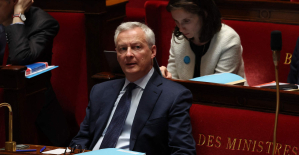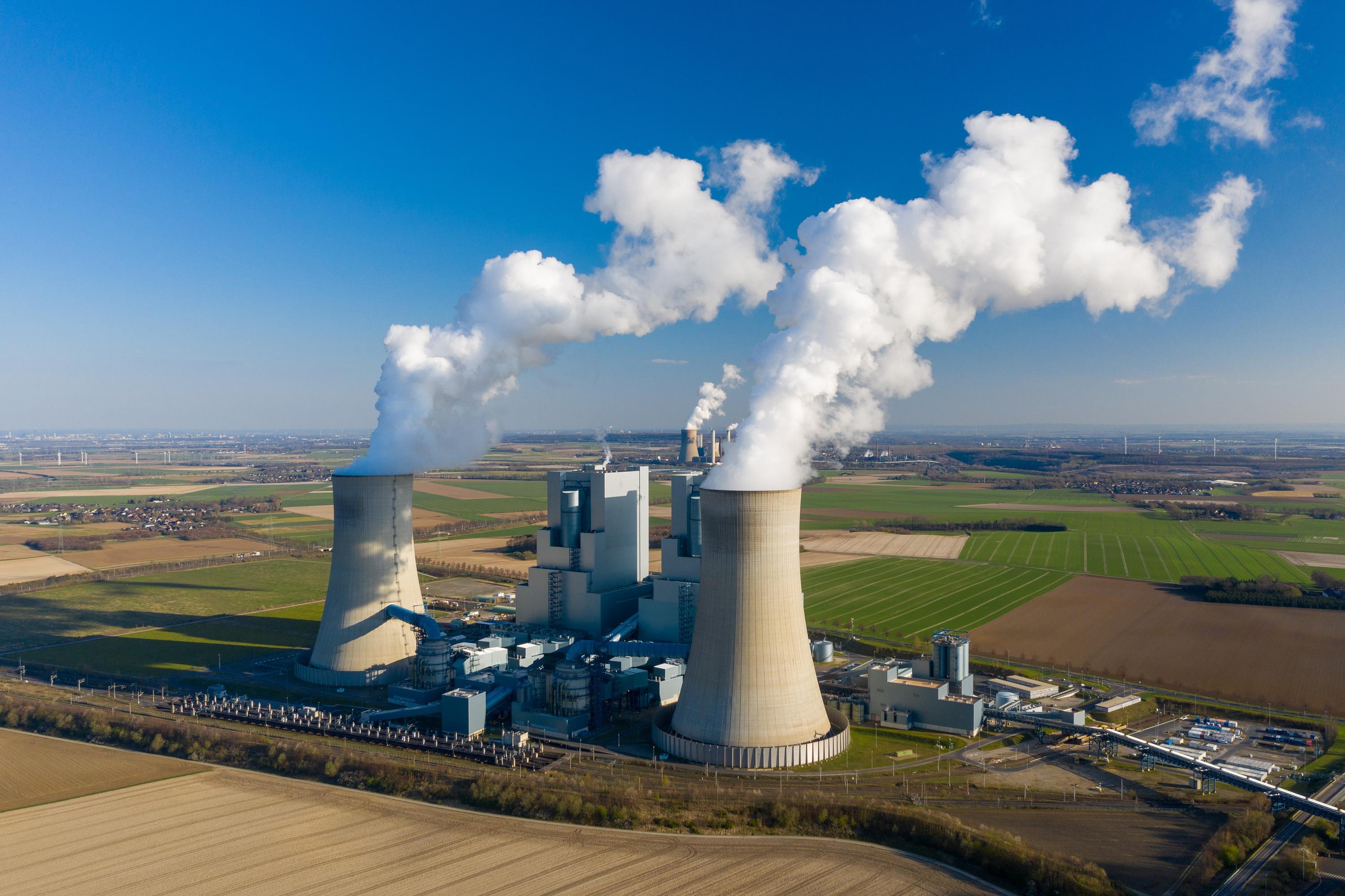Fabrice Balanche is a lecturer in geography at the University of Lyon 2 and an associate researcher at the Washington Institute (think-tank). A specialist in the Middle East, he is the author of Atlas of the Near East (2017) and Sectarianism in Syria's Civil War (2018).
LE FIGARO.- Bashar Al-Assad very rarely leaves Syria. He has only visited three non-Arab countries since 2011. What are the challenges of this visit to China?
FABRICE BALANCHE.- The issue is first and foremost diplomatic. Bashar Al-Assad wants to show that he is rehabilitated abroad, and in particular by China, the second world power. This visit also shows his allegiance to the Eurasian axis, this alliance between China and Russia which includes several countries such as Iran and Pakistan. For this, Syria asked to join the Shanghai Conference (a global alliance, dominated by Beijing, Editor's note). This bloc aims to compete with the Western bloc.
For China, the interest is mainly economic. It is about taking part in the reconstruction of Syria which must urgently find financial means because it is running out of steam. In the south of the country, in the mainly Druze demonstrations demanding the departure of Bashar Al-Assad, the government is being demanded to act against the high cost of living. Wages are miserable, people earn less than $20 a day and only have one hour of electricity a day. Chinese economic aid would therefore be welcome for the Syrian leader. But the Chinese are not philanthropic and have only limited interest in Syria, which is not located on maritime routes.
Also read Shanghai Cooperation Organization: largest regional alliance in the world and “anti-West coalition”?
Hydrocarbon resources are meager. Before the war, it produced only 380,000 barrels of oil per day, at its peak. By comparison, Iraq extracts six million barrels per day. In addition, Syrian resources are in the hands of the Russians, who use them to reimburse their military aid. If the Chinese invest in Syria, it will have to be understood as a return of favor to the Iranians who are Beijing's true regional ally. China could waste money in this context.
Where is the regime militarily?
It controls two-thirds of the territory, and two-thirds of the resident population, or nearly 12 million people. But his army is bloodless, exhausted by this war, and still counting on Russian support. The latter are occupied in Ukraine and have neither the means nor the desire to support Bashar Al-Assad in a major offensive which would aim to retake the North.
The Iranians are still present with militiamen and their Hazara auxiliaries, Afghan Shiites. These reinforcements compensate for the weakening, within the Syrian army, of the Alawites, the community from which Bashar Al-Assad comes. These elite troops were bled dry.
What has been China’s position on the Syrian conflict so far?
She has always defended Bashar Al-Assad and aligned herself with Moscow.
Syria has been reintegrated into the Arab League, is this the start of normalization?
Of course ! It was a consecration for Bashar Al-Assad to go to Jeddah, Saudi Arabia. He savored his revenge there. The Saudis had given several billions to the Syrian opposition to bring down the Syrian leader.
Also read: Syria: how to explain the strong return of Bashar al-Assad on the international scene?
You say that the Russians are “occupied in Ukraine and have neither the means nor the desire to support Bashar Al-Assad”. Is Russian aid compromised by the Ukrainian war?
Russian military aid is being reduced because of their war effort in Ukraine. Syria is no longer the priority of the Kremlin, which nevertheless continues to support it. In reality, the Russians need Turkey's benevolent neutrality in Ukraine. They are therefore slowing down a Syrian offensive in northern Syria, under Turkish control. They are putting pressure on an offensive towards areas under Kurdish control, which the Turks would like to see eliminated.
Also read: Syria puts strain on the relationship between Turkey and Russia
The Syrians are dependent on Russian goodwill, and must follow them diplomatically. Economic aid is almost non-existent. The Russians were stingy and demanded payment for their military aid. Which is a notable change compared to the USSR which granted funds to sister countries without compensation. Syria imports 70% of its wheat from Russia. Which forces Assad to lift subsidies on bread. A subject that will become explosive, since the price of bread could quintuple.
China successfully reconciled Iran and Saudi Arabia in March. What role does Beijing want to play in the Middle East?
China simply wants to replace the United States in the Middle East. The region accounts for a third of the world's conventional oil exports, and two-thirds of the world's reserves! The Chinese, who do not believe in the “myth” of decarbonization, are counting on these hydrocarbons.
Also read: Gilles Kepel: “China consolidates its superpower status in the Middle East”
The Middle East is also a strategic crossroads, with the Red Sea and the Suez Canal, as well as roads that can double the canal. China, like any great power, must control maritime and land routes to secure its supplies and the flow of its goods.

 Russia: schools will train children to use drones at the start of the school year
Russia: schools will train children to use drones at the start of the school year Austria: incestuous torturer Josef Fritzl, nicknamed the “national monster”, could soon be released
Austria: incestuous torturer Josef Fritzl, nicknamed the “national monster”, could soon be released An airline continues to treat a centenarian as a one-year-old baby
An airline continues to treat a centenarian as a one-year-old baby Germany: the trial of nine “Citizens of the Reich” conspirators begins this Monday
Germany: the trial of nine “Citizens of the Reich” conspirators begins this Monday Sánchez cancels his agenda and considers resigning: "I need to stop and reflect"
Sánchez cancels his agenda and considers resigning: "I need to stop and reflect" The Federal Committee of the PSOE interrupts the event to take to the streets with the militants
The Federal Committee of the PSOE interrupts the event to take to the streets with the militants Repsol: "We want to lead generative AI to guarantee its benefits and avoid risks"
Repsol: "We want to lead generative AI to guarantee its benefits and avoid risks" Osteoarthritis: an innovation to improve its management
Osteoarthritis: an innovation to improve its management Sanofi: demonstration in front of Paris headquarters against job cuts
Sanofi: demonstration in front of Paris headquarters against job cuts The Chinese car manufacturer BYD sets out to conquer France
The Chinese car manufacturer BYD sets out to conquer France Public finances: after the deputies, Bruno Le Maire asks the senators for savings avenues
Public finances: after the deputies, Bruno Le Maire asks the senators for savings avenues Faced with opposition from London, a fund supported by Abu Dhabi abandons the purchase of the Daily Telegraph
Faced with opposition from London, a fund supported by Abu Dhabi abandons the purchase of the Daily Telegraph Omar Sy on all cultural fronts
Omar Sy on all cultural fronts Jacques Audiard, Swann Arlaud, Benjamin Stora... A hundred men from cinema, theater and books in support of
Jacques Audiard, Swann Arlaud, Benjamin Stora... A hundred men from cinema, theater and books in support of Resale, scams and fake tickets: how not to get scammed before Taylor Swift concerts
Resale, scams and fake tickets: how not to get scammed before Taylor Swift concerts Isild Le Besco is not ready to file a complaint against Benoît Jacquot
Isild Le Besco is not ready to file a complaint against Benoît Jacquot Omoda 7, another Chinese car that could be manufactured in Spain
Omoda 7, another Chinese car that could be manufactured in Spain BYD chooses CA Auto Bank as financial partner in Spain
BYD chooses CA Auto Bank as financial partner in Spain Tesla and Baidu sign key agreement to boost development of autonomous driving
Tesla and Baidu sign key agreement to boost development of autonomous driving Skoda Kodiaq 2024: a 'beast' plug-in hybrid SUV
Skoda Kodiaq 2024: a 'beast' plug-in hybrid SUV The home mortgage firm rises 3.8% in February and the average interest moderates to 3.33%
The home mortgage firm rises 3.8% in February and the average interest moderates to 3.33% This is how housing prices have changed in Spain in the last decade
This is how housing prices have changed in Spain in the last decade The home mortgage firm drops 10% in January and interest soars to 3.46%
The home mortgage firm drops 10% in January and interest soars to 3.46% The jewel of the Rocío de Nagüeles urbanization: a dream villa in Marbella
The jewel of the Rocío de Nagüeles urbanization: a dream villa in Marbella Europeans: a senior official on the National Rally list
Europeans: a senior official on the National Rally list Blockade of Sciences Po: the right denounces a “drift”, the government charges the rebels
Blockade of Sciences Po: the right denounces a “drift”, the government charges the rebels Even on a mission for NATO, the Charles-de-Gaulle remains under French control, Lecornu responds to Mélenchon
Even on a mission for NATO, the Charles-de-Gaulle remains under French control, Lecornu responds to Mélenchon “Deadly Europe”, “economic decline”, immigration… What to remember from Emmanuel Macron’s speech at the Sorbonne
“Deadly Europe”, “economic decline”, immigration… What to remember from Emmanuel Macron’s speech at the Sorbonne These French cities that will boycott the World Cup in Qatar
These French cities that will boycott the World Cup in Qatar Football: the CAS suspends the sanction of Gabigol who will be able to play again
Football: the CAS suspends the sanction of Gabigol who will be able to play again Wrestling: everything you need to know about the sport
Wrestling: everything you need to know about the sport Luis Enrique before Dortmund-PSG: “We must not see pressure as a threat”
Luis Enrique before Dortmund-PSG: “We must not see pressure as a threat” Tennis: the astonishing ploy of Medvedev’s coach to avoid being filmed in his box
Tennis: the astonishing ploy of Medvedev’s coach to avoid being filmed in his box

















